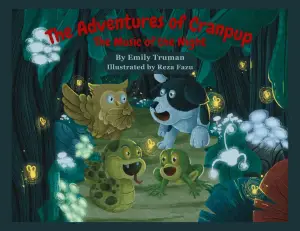I recently finished reading A Woman of Strength, by the beloved bestselling author Danielle Steel, and I found it to be a captivating journey through resilience and the complexity of love amid historical turmoil. As a long-time fan of historical fiction, especially those that touch upon personal struggles during significant events, this book piqued my interest. The blending of personal narrative with the backdrop of World War I and the subsequent societal changes in America seemed like a rich story waiting to unfold.
Steel’s protagonist, Alexandra Bouvier, is a wonderfully fleshed-out character. Born in Paris in 1900, she embodies the independent spirit that has run through Steel’s characters yet remains distinct in her struggles with loss, love, and ambition. One aspect that particularly resonated with me was the portrayal of her journey from Paris to the University of Chicago while grappling with profound grief from the war and the Spanish Flu. The author’s ability to situate Alexandra’s personal turmoil against significant historical events added depth to her character and made her struggles all the more relatable.
Many readers, including ianpeter, highlighted how the storyline is one of Steel’s stronger ones, citing its ability to evoke a spectrum of emotions and its unpredictability. I wholeheartedly agree. The narrative kept me on my toes, especially with the relationship that developed between Alexandra and Oliver Foster, a fellow journalist. Their interactions had a beautiful mixture of tension and rapport, amplified by their shared pain. Yet, I found myself equally invested in the evolving world around them, showcasing Steel’s talent for world-building.
That said, there were moments when I felt the pacing lagged. For example, Kindle TerriCustomer’s review noted that while the central narrative was compelling, the slower sections made the reading experience feel stretched. I can empathize with that sentiment. There were parts where the emotional reflections were necessary to illustrate the weight on Alexandra’s shoulders, but it sometimes disrupted the overall flow.
Additionally, readers like Audrey have lauded Steel’s writing style as entertaining, and I found myself captured by her vivid descriptions and engaging dialogue. The book indeed made me smile, and in some instances, brought tears to my eyes—showing its emotional range effectively, as noted by others. However, I also felt that some interactions seemed a bit cliched, especially when Alexandra’s independence was put into question by societal expectations.
On a positive note, when Steel integrates historical accuracy, it’s often paired with believable character development. Catherine M. Miller pointed out that A Woman of Strength shifts away from the typical romance narrative to delve into more profound themes of resilience and self-discovery. This statement resonated with me. Steel crafted a story that’s not purely romance-focused but instead emphasizes personal strength and the sting of loss.
Ultimately, I would recommend A Woman of Strength to anyone who appreciates historical fiction layered with emotional narratives. While it had its slower moments, the core message of empowerment and the courage to face heartbreak stood strong throughout the tale. In the end, I would rate this book a solid 4.5 stars. Danielle Steel has delivered a thoughtful and engaging work that illustrates how history and personal journeys can intersect powerfully. If you’re a fan of her writing or just enjoy a rich historical backdrop coupled with heartfelt character arcs, this novel will not disappoint.
“Discover the captivating journey of self-discovery in A Mind of Her Own.” >>








